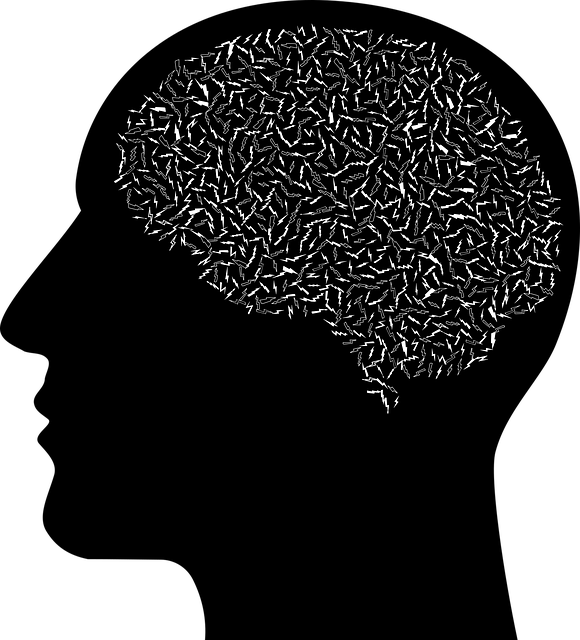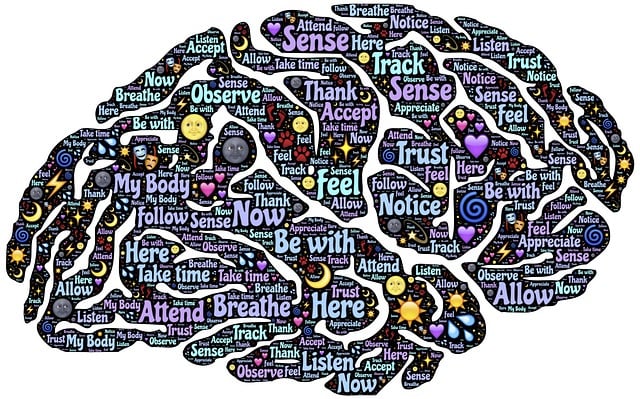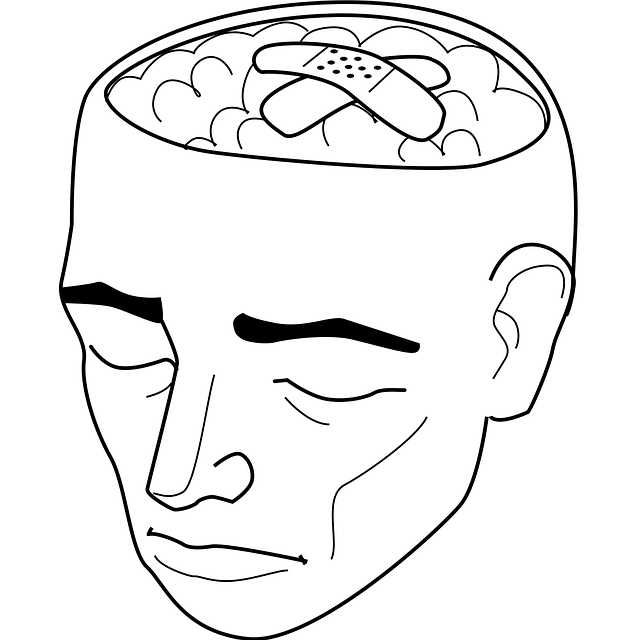The text discusses the dynamic nature of personal well-being, highlighting that it's shaped by ongoing adjustments to changing health conditions and circumstances. It emphasizes the importance of individual perspectives in navigating these challenges, drawing from past experiences. The rise of digital therapy, particularly apps like Englewood Eating Disorders Therapy, is noted as a game-changer. These apps offer personalized treatment, continuous support, and accessible resources for mental wellness, with features like mindfulness exercises, conflict resolution techniques, and journaling prompts. They revolutionize care, especially for eating disorders, by combining evidence-based practices with engaging digital experiences. Cultural sensitivity in app development is crucial to ensure inclusivity and effectiveness across diverse user backgrounds.
In today’s digital age, mental wellness app development has emerged as a powerful tool to address growing concerns around mental health. This article explores the impact of digital therapy on eating disorders, highlighting key features and considerations for creating effective apps. We delve into the success story of the Englewood Eating Disorders Therapy App, showcasing how innovative solutions can revolutionize treatment accessibility and outcomes. By understanding mental health’s daily life effects and embracing technology, we can foster better support systems.
- Understanding Mental Health and Its Impact on Daily Life
- The Role of Digital Therapy in Treating Eating Disorders
- Features and Considerations for Developing an Effective App
- Case Study: Englewood Eating Disorders Therapy App Success Story
Understanding Mental Health and Its Impact on Daily Life

Mental health is a cornerstone of overall wellness, influencing how individuals think, feel, and act in their daily lives. It encompasses emotional, psychological, and social well-being, impacting one’s ability to cope with stress, make choices, and relate to others. Englewood Eating Disorders Therapy highlights the unique challenges associated with eating disorders, which are complex mental health conditions often rooted in underlying issues such as body image dissatisfaction, low self-esteem, or trauma.
The impact of mental health on daily life is profound. Untreated conditions can lead to difficulties concentrating, making decisions, and maintaining healthy relationships. They may also contribute to physical health problems and hinder an individual’s ability to function productively in various aspects of life, including work, education, and social interactions. Therefore, initiatives like Community Outreach Program Implementation, Stress Management Workshops Organization, and Coping Skills Development play a crucial role in promoting mental wellness and fostering supportive communities where individuals can seek help without stigma.
The Role of Digital Therapy in Treating Eating Disorders

In recent years, digital therapy has emerged as a powerful tool in the field of mental wellness, particularly for treating eating disorders. Apps designed for Englewood Eating Disorders Therapy offer a convenient and accessible approach to support individuals struggling with conditions like anorexia nervosa, bulimia, or binge eating disorder. Through interactive features, these apps provide personalized treatment plans, mindfulness exercises, and education tailored to each user’s unique needs. By combining evidence-based practices with engaging digital experiences, they foster empathy building strategies and resilience in individuals seeking recovery.
The integration of technology in therapy allows for continuous support, even between sessions. Users can track their progress, receive encouraging reminders, and access a wealth of resources at their fingertips. This accessibility is crucial in depression prevention, as it enables early intervention and regular practice of healthy coping mechanisms. By offering a safe and non-judgmental space, these digital platforms encourage vulnerable individuals to take charge of their mental wellness journey and build the resilience needed to overcome eating disorders.
Features and Considerations for Developing an Effective App

An effective mental wellness app should be tailored to meet diverse user needs and incorporate a range of engaging features. Beyond basic tracking and journaling, successful apps leverage technology to foster Mental Health Awareness through interactive tools like mindfulness exercises, guided meditations, and cognitive-behavioral techniques. Incorporating Mind Over Matter Principles can empower users with coping mechanisms, self-reflection prompts, and positive affirmations to cultivate resilience and emotional intelligence.
When developing such an app, it’s paramount to address Cultural Sensitivity in Mental Healthcare Practice. This involves incorporating diverse perspectives, ensuring inclusive language, and offering content that resonates with various cultural backgrounds and beliefs. Features like customizable profiles, adaptable content, and multilingual options can significantly enhance accessibility and user engagement, as seen in apps specializing in Englewood Eating Disorders Therapy, where tailored interventions cater to individual needs while respecting cultural contexts.
Case Study: Englewood Eating Disorders Therapy App Success Story

The Englewood Eating Disorders Therapy app stands as a shining example of how technology can revolutionize mental health support. This innovative platform was designed to address the specific challenges faced by individuals struggling with eating disorders, offering tailored interventions and resources. By combining evidence-based practices with engaging user interfaces, the app has achieved remarkable success in promoting healing and recovery.
One of its key features is the integration of Conflict Resolution Techniques, enabling users to identify and manage triggers, while providing coping strategies for healthier relationships with food and bodies. Additionally, the app offers Mental Wellness Journaling Exercise Guidance, encouraging self-reflection and expression through journaling practices designed to boost Self-Esteem Improvement. Through these comprehensive tools, Englewood Eating Disorders Therapy is transforming lives by offering accessible, effective support tailored to individual needs.
Mental wellness app development has proven to be a game-changer, especially in treating eating disorders. As seen with the success of the Englewood Eating Disorders Therapy app, digital therapy offers accessible and effective support for those struggling with their mental health. By incorporating evidence-based practices and user-friendly features, developers can create apps that foster healing and recovery. Understanding the unique needs of users and staying informed about best practices ensure that these tools remain valuable resources in navigating the complex landscape of mental wellness.











